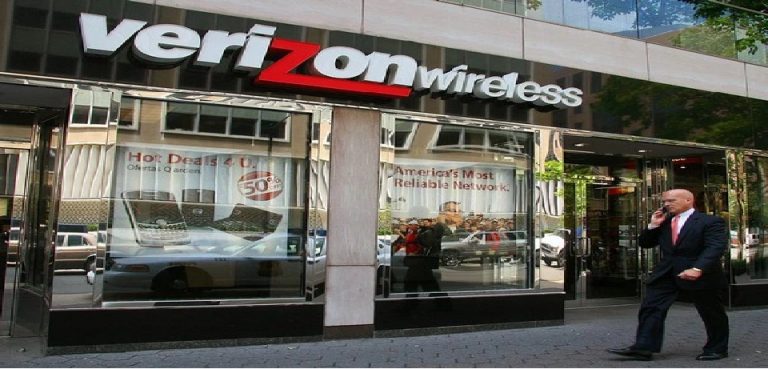
Verizon has announced its plans to acquire Frontier Communications, an internet service provider with a customer base of around 3 million across 25 states, in a deal valued at $20 billion. The all-cash transaction will see Verizon pay $9.6 billion while assuming over $10 billion in Frontier’s existing debt.
The acquisition, which is subject to regulatory approval and a shareholder vote, is expected to be finalized within the next 18 months.
As part of the deal, Verizon will purchase Frontier at a price of $38.50 per share, representing a 43.7 percent premium over Frontier’s 90-day volume-weighted average share price (VWAP) as of September 3, 2024. This move brings Verizon full circle, as it reacquires a portion of its own network that it sold to Frontier in 2016, which included its FiOS and DSL operations in Florida, California, and Texas. That transition in 2016 faced substantial technical issues, leading to outages that impacted tens of thousands of customers, creating significant disruption for Frontier during the early days of the acquisition.
Register for Tekedia Mini-MBA edition 19 (Feb 9 – May 2, 2026): big discounts for early bird.
Tekedia AI in Business Masterclass opens registrations.
Join Tekedia Capital Syndicate and co-invest in great global startups.
Register for Tekedia AI Lab: From Technical Design to Deployment (next edition begins Jan 24 2026).
Frontier has faced its own set of challenges over the years. After purchasing Verizon’s assets, the company struggled with operational difficulties, which were further compounded by its 2014 acquisition of AT&T’s network in Connecticut.
In April 2020, Frontier filed for bankruptcy, citing unsustainable debt levels and operational inefficiencies. However, it managed to emerge from bankruptcy in 2021 with a renewed focus on upgrading its network, shifting from outdated copper DSL infrastructure to fiber-to-the-home (FTTH) services. Since its restructuring, Frontier has heavily invested in fiber technology, which has made it an attractive acquisition target for Verizon.
The acquisition includes Frontier’s 2.2 million fiber subscribers, spread across 25 states, adding to Verizon’s existing 7.4 million FiOS connections in 9 states and Washington, D.C. Combined, the two companies will have fiber networks that pass over 25 million premises across 31 states and the District of Columbia.
Verizon has disclosed that Frontier’s presence in regions like the Midwest, South, and West will complement its own stronghold in the Northeast and Mid-Atlantic markets, enabling Verizon to expand its offerings of bundled services, including both internet and mobile service.
Frontier’s transformation in recent years has made it more appealing for Verizon. Over the past four years, Frontier invested $4.1 billion into upgrading and expanding its fiber network. Today, more than half of Frontier’s revenue is generated from fiber products.
The company’s commitment to fiber has helped it grow, even though it still faces challenges in customer retention and growth, with 2.05 million residential fiber subscribers and 721,000 copper DSL customers. In its latest earnings report, Frontier recorded $1.48 billion in revenue for the second quarter of 2024, alongside a net loss of $123 million, indicating that while fiber has been a game-changer, the company still has a way to go toward profitability.
What The Deal Means for Both Companies
Verizon sees the acquisition as a strategic opportunity to enhance its fiber footprint across the U.S., particularly as Frontier is in the process of building an additional 2.8 million fiber locations by 2026, which would boost its network capacity to 7.2 million fiber locations. With Verizon’s well-established FiOS brand and Frontier’s complementary reach, the acquisition positions both companies to capture a larger share of the growing demand for high-speed internet, especially as consumers increasingly adopt fiber for more robust and reliable connections.
For Frontier, the deal represents a lifeline and a strategic exit. The company has faced well-documented financial struggles, culminating in its 2020 bankruptcy filing, and although it has made strides in its fiber upgrade plan, the pressures of maintaining both fiber and legacy copper networks were a burden. The all-cash transaction allows the company to offload its fiber network while avoiding the long-term capital expenditures needed to keep pace with larger players like Verizon and AT&T.
The decision to sell for $38.50 per share, representing a 43.7% premium over the 90-day volume-weighted average, indicates that Frontier’s shareholders are receiving substantial value. This could be seen as a win for investors who may have been wary of the company’s ability to sustain its recent momentum in fiber deployment.
However, the $10 billion debt that Verizon is absorbing from Frontier underlines the scale of the financial challenges Frontier has faced.
Looking at the broader market implications, analysts believe that this acquisition is likely to increase competitive pressure on other U.S. telecom providers, particularly AT&T and Comcast, which are also investing heavily in fiber rollouts. This means the consolidation of these networks under Verizon’s control could lead to a price war or accelerated network buildouts as companies vie for dominance in the fiber and 5G spaces.



